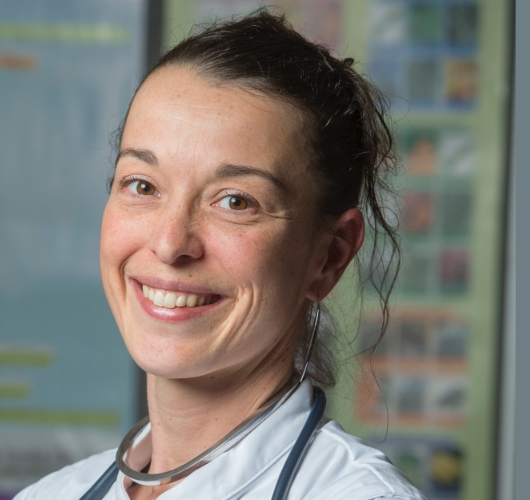
The Society
More than 35,000 clinicians, scientists and allied health professionals from over 160 countries are part of the ERS community
Become an ERS member







Home The Society Assemblies and Groups ERS Assembly 5: Airway diseases, asthma, COPD and chronic cough
Home The Society Assemblies and Groups ERS Assembly 5: Airway diseases, asthma, COPD and chronic cough
Group 05.01
Chair: Alexander Mathioudakis
Secretary: Matteo Bonini
The airway pharmacology and treatment Group consists of 466 members and has a truly translational research focus. Most airway and lung diseases are not cured and treatment is often through pharmacological agents. Historically, the airway pharmacology and treatment Group has focused on the pharmacology of drugs used in asthma and COPD therapy and the development of scientific rationales for new drug development. Thus, it covers all aspects of drug development from basic science through animal models, to phase 1-3 clinical trials. This area has involved collaboration between clinicians, pharmacologists and more recently molecular biologists and biochemists.
There is further interest in bronchodilator drugs, therapies targeting cough, anti-inflammatory therapies and therapies aimed at tissue remodelling in chronic lung disease. In all of these areas, the investigation of the correlation between the pulmonary pharmacokinetics and pharmacodynamics is essential, ensuring the group has a strong interest in studies on drug deposition and delivery through (innovative) delivery devices. Finally, cooperation with experts in infectious diseases exists due to increasing use of antibiotics for lung disease.
Group 05.02
Chair: Fabio L. M. Ricciardolo
Secretary: Pavol Pobeha
Our mission is the advancement and dissemination of knowledge on the mechanisms and therapeutic and monitoring strategies in airway inflammation and hyperresponsiveness.
Airway monitoring is today one of the pillars of respiratory medicine across Europe, not only from the standpoint of diagnosis, but from a therapeutic perspective contributing to the identification of new potential therapeutic targets. Our Group is therefore able to achieve a double impact on the practice of pulmonology. On one hand, it contributes to medical practice, improving the health of our patients by pushing strategies to categorise patients, allowing more personalised diagnosis and treatment. On the other hand, the Group also fulfils a research mission that is crucial to meet its objectives and in which all members have also a major role. It is our desire to serve as a link between all members of the Group, since we believe that these two objectives, healthcare and research, are possible with the participation of as many members of the ERS as possible. In this way, participation in discussion forums and research projects of interest to the Group will contribute to improved respiratory health of our patients.
Group 05.03
Chair: Robert Snelgrove
Secretary: Gert-Jan Braunstahl
The innate and adaptive immune systems have essential roles in the homeostasis of airway and pulmonary functioning. They are crucial in the defence against invasive microorganisms.
The chronic and allergic immune reactions play a role in several airway diseases, including asthma, COPD and airway infectious diseases. The activities of our Group focus on the inflammatory/immune reactions in relation to airway diseases. Our members are involved in studies looking at the functioning and regulation of cells of the immune system, including pulmonary macrophages, eosinophils, neutrophils, mast cells, and lymphocytes but also constitutive airway cells, such as epithelial cells, smooth muscle cells and fibroblasts. Of particular importance is to tease out the different clinical phenotypes of airways diseases and to relate them to inflammatory/immune characteristics as well as genetic susceptibility to environmental stimuli (allergens or pollutants). The activities of our members range from basic science to clinical practice, as well as from mouse to man. We have close cooperation with several other Groups and Assemblies and members of our Group participate in various ERS task forces. Our Group organises many sessions (oral presentations, poster discussions, thematic posters) during the annual ERS Congress, on the basis of submitted abstracts. We hope that many new members will join us and we look forward to your proposals for symposia, task forces and research seminars.
You can join this assembly by selecting it as your main group or one of your optional groups in myERS. Only ERS members can join this assembly. Selections can be changed at any time.
Join the Airway diseases, asthma, COPD and chronic cough assembly

